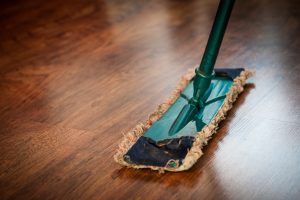Routines are important in a lot of areas of life. For instance, you don’t need a checklist of things to do in the morning because you brush your teeth as part of a standard routine.
I do not live a routine-filled life. In some ways, I wish I had certain routines, like waking up and running, but that just doesn’t fit with my energy cycle (i.e. I hate mornings). I will add, though, that I did dance a couple Cha Chas this morning to wake up after a night of lesser sleep, and it did a decent job. Maybe that’ll be part of my morning routine.
Routines can also kill productivity. I’ll give you an example:
My friend Michelle came over to help domesticate my house a little bit–you know, make it seem less like Austin Power’s Pad.
Part of the deal was that in order to organize and rearrange things, I had to clean, with chemicals, my tax season “state of working.”
Understandable, but she came over earlier a day earlier than anticipated, plus the free time I was originally going to spend cleaning was consumed by starting my nonprofit and prepping for a great interview with the MSP Biz Journal reporter.
So I didn’t have time to clean everything. I mean, it was pretty darn spotless, but not perfect.

Well, she was going to put dishes in my sink, so I quickly disclaimed the imperfection of the left sink. The enamel of the left sink is thin, do it becomes discolored quickly, and I didn’t prioritize scrubbing it.
So I told her one of my life theories, one involving housekeeping:
There are jobs one does often. They’re done quickly and have a high impact. They are routine jobs. Scrubbing the sink is one of these.
But if one wants to make actual progress, he or she has to do nonroutine cleaning, which is what I did.
Notably, the routine cleaning will get done regardless of effort. Need silverware? BAM–dishes get done.
But if I want to make any progress at all, I start by doing nonroutine jobs. These are jobs I generally try to permanently defer, or they’re jobs for which I never find time. They are often the above and beyond difference no one will notice. Or they’re jobs I don’t particularly enjoy. These are tasks like organizing papers into where they actually go instead of placing them in a “file later” pile or dusting the shelves no one will see.
These are tasks like replacing your food into single serve containers.
These are tasks like making the bathroom mirror sparking clean instead of just wiped down (okay, that’s an often noticed plus).
By breaking routine, sometimes you can actually get things done. Now, a life of a million pieces seems completely random, but my routine is to point them all towards a single, unified purpose.
That is how I handle routines, or don’t handle them, or why I choose to keep a nonroutine life.
